#it's relevant
Explore tagged Tumblr posts
Text
me: i'm going to get so much writing done today!
also me: spends like an hour reading about deponent verbs in latin
16 notes
·
View notes
Note
Disney would turn live action Mya into a mary sue girl boss who can do no wrong.
They'll erase all her flaws, or present her flaws as if they're positive empowering traits.
That scene where Mya yells at Oliver and brings up his dad leaving him? She's not gonna apologize for that. The narrative will act like Oliver deserved that specific comment.
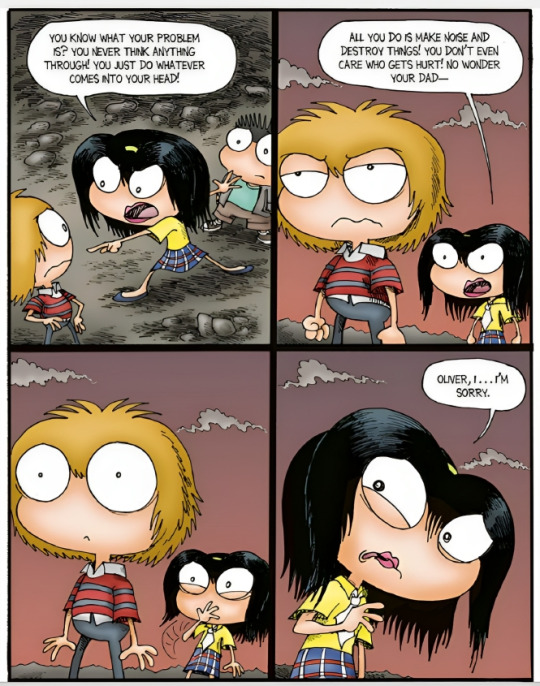
Mya will leave her timeline in the end, and the narrative will portray this as... selfcare or something.
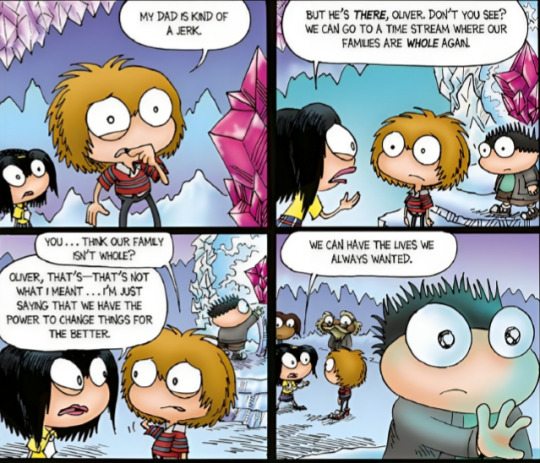
They'll make Oliver into a selfish jerk, because... White Boy Bad.
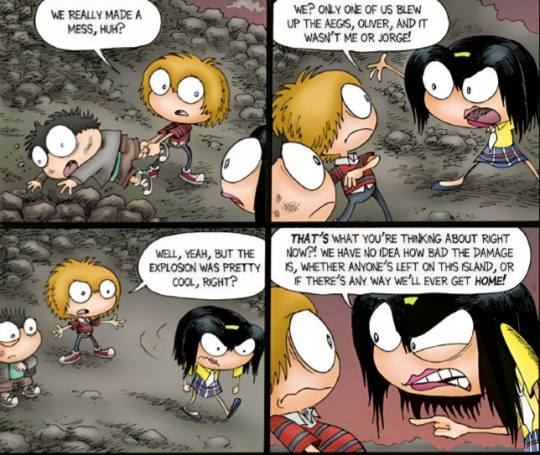
No idea what they'll do to Jorge. Probably leave him alone, or make him completely useless. Instead of Jorge helping Mya come to terms with everything in the end, Mya will get there herself.
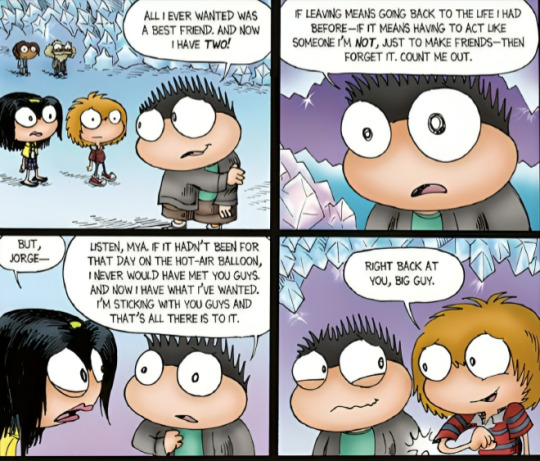
Spencer Albright will be a woman. Just because XD
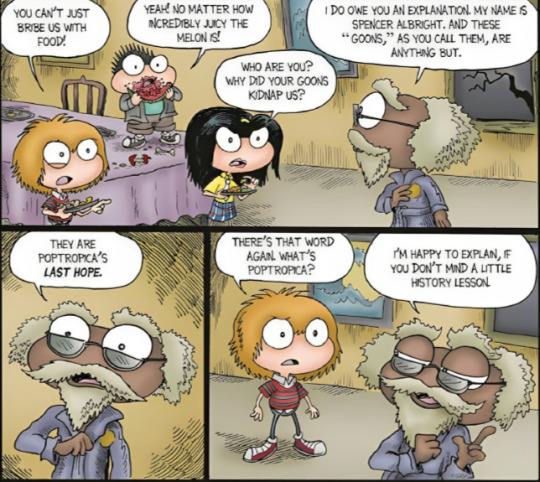
Jonas, like Oliver, will be made into more of a jerk because... Boy Bad In General.
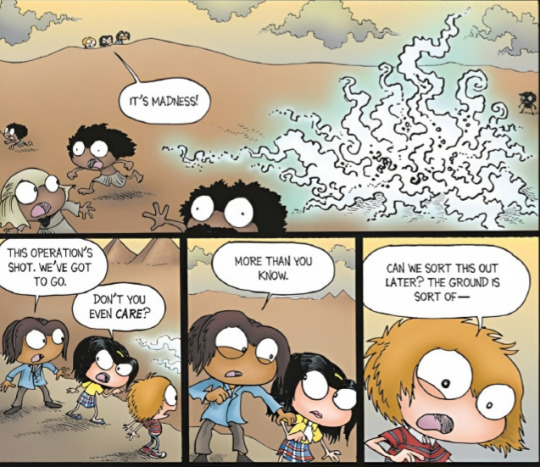
The narrative will frame Octavian as being 100% in the right, despite everything he's done.
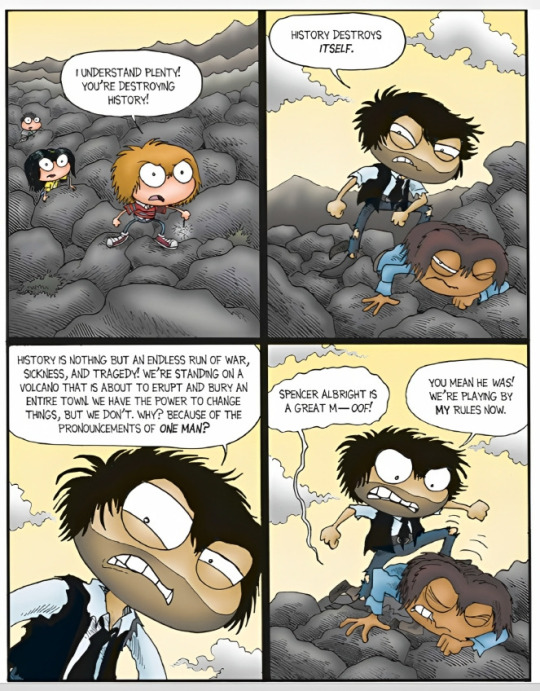
The hypothetical Disney's live action Mystery of the Map is looking good so far.
#ask#poptropica#poptropica mystery of the map#poptropica graphic novels#mya hartman wong#oliver hartman wong#jorge flores poptropica#spencer albright#jonas poptropica#octavian poptropica#disney#live action lilo and stitch#it's relevant#disney critical#live action disney remake#lilo and stich 2025
12 notes
·
View notes
Note
you’ve mentioned a few times in your meta that you view nmj as being hypocritical, and i’m inclined to agree with you! would you share some specific quotes from the text that you feel especially support this reading of his character? 👀
It is one of my favourite words to apply to him, isn’t it! I think that’s because a) it’s true, and b) NMJ’s reputation for righteousness (and his belief in his own righteousness) grant an in-universe illusion of consistency that often bleeds through to external readings of him. So I press the point, because it’s fundamental to his character and I usually see it elided or reduced to all-bark-and-no-bite-grumpy-bear-with-a-heart-of-gold fanon NMJ.
And oh yes, there’s an absolute wealth of quotes supporting this. As always, I use the EXR fan translation because I’m old school.
Christ, this got long. Click for more.
It’s all relative, man
First we need to establish what NMJ’s principles supposedly are.
[Nie Huaisang’s] brother, Nie Mingjue, was extremely resolute when carrying out orders, quite renowned in the cultivation world. […] Nie Mingjue had always taught his younger brother with extreme harshness, particularly caring for his studies. (Chapter 13)
[…] he took over the Nie Sect before he even reached twenty, doing everything in a direct, forceful fashion. (Chapter 21)
When he lived, Nie Mingjue was often exasperated by the fact that his brother didn’t meet expectations, so he disciplined him strictly. (Chapter 21)
In spite of Nie Mingjue being a junior to Jin Guangshan, he conducted himself in a strict manner and refused to tolerate Xue Yang no matter what. (Chapter 30)
Without any hesitation, Nie Mingjue scolded, “Drinking the water he brought you while speaking such spiteful words! Did you join my forces not to kill the Wen-dogs but to make idle talk?!” (Chapter 48)
“A proper man should carry himself with proud righteousness. There’s no need to care for the talk of those idlers.” (Chapter 48)
As we can see, NMJ is all about righteousness, but we don’t get too many details confirming what that righteousness entails. We’re expected to make assumptions based on context: that his values are in line with the ideal values of his society, and that he’s living his life according to those principles (and enforcing said principles on others).
This is worth keeping in mind. We know NMJ is ‘righteous’. We know, in a general sense, what societal standards for morality are in this setting and we see the tension between society’s theoretical standards, its actual standards, and the moral frameworks of characters such as WWX and LXC. And there’s tension between those standards and NMJ’s moral framework, too. But though WWX attempts (and fails) to opt out and LXC attempts (and fails) to find a better way through open conversation and consideration of context, their failures are not due to hypocrisy but instead larger forces at play. In other words, they go up against society and society wins.
NMJ has a problem with society too, but for him the problem is not with its rules and assumptions—it’s with the individuals who make it up. He has no problem with the system. To NMJ, the system is a good thing. If only the people in it would rigidly conform to the rules, everything would be fine. And an outlook like that can only ever lead to hypocrisy, not just because human beings and their actions don’t fit into rigid categories, but because by not attempting to navigate the system (LXC, JGY, JC) or even attempting to opt out (WWX, LWJ, XY), NMJ positions himself above society, as a moral arbiter.
This is why he feels entitled to upbraid JGS, who is a generation above him. It’s why he feels entitled to harass and attempt to murder JGY for not being loyal to NMJ over and above his filial duty to his father. These actions are after he’s reached the point of no return with the sabre spirit, yes, but they didn’t come out of nowhere. It’s just the nadir of a path he’s been on presumably his entire life.
All the information is on the task
NMJ is very good at bending his supposedly rigid principles when it’s convenient for him, while not offering any grace or understanding to others who do the same. And ‘others’, let’s be real, usually equates to JGY. The horror vortex of NMJ’s obsession with controlling JGY really cannot be escaped.
Let’s start with the biggie. JGY is naturally the one who calls NMJ out, because he’s the only one who can see the emperor has no clothes, and by clothes I mean leg to stand on.
“But, Brother, I have always wanted to ask you something—the lives under your hands are in any regard more than those under mine, so why is it that I only killed a few cultivators out of desperation and you keep on bringing it up, even until now?” (Chapter 48)
“Are you saying that all of the people you killed deserved their deaths? […] Then, may I ask, just how do you decide if someone deserves death? Are your standards absolutely correct? If I kill one but save hundreds, would the good outweigh the bad, or would I still deserve death? To do great things, sacrifices must happen.” (Chapter 48)
Chifeng-zun, my man, he has nailed you. The point is not to start drawing equivalences in quite the way JGY is doing—I would certainly argue that if you’re killing undeserving people for the greater good you’d better have one hell of a greater good to be aiming for, even in the crapsack world of MDZS. JGY’s argument is partly a numbers game, but I want to set that aside, because it’s a distraction from his core point, to which numbers are irrelevant: can NMJ truly justify every single murder he has ever committed? Because if he can’t, he’s condemned by his own supposed standards. Note JGY’s use of the word ‘absolute’. NMJ is a moral absolutist! Is he absolutely sure? And if he is sure, does it matter that he’s sure? Why is his certainty more important than anyone else’s?
NMJ never once grapples with these questions. If he did, he might be able to pull the teeth of his own hypocrisy by acknowledging it and engaging with it. But of course he’s not capable of that, certainly not by the time of this scene.
And speaking of NMJ’s hypocrisy re: who does and doesn’t deserve to die…
“Very well! I’ll kill myself after I kill you!” (Chapter 49)
But Roquen, you cry! NMJ says such an utterly mad thing because he’s battered and beaten and not thinking clearly, not to mention past the point of no return with the sabre spirit as he’s been cultivating with resentful energy intensely throughout the war! That’s why he walks it back after LXC intervenes!
To which I say: it is almost as though context matters!
And yes, I’m aware of the context. I’m aware that just before this bit of dialogue the narrative claims JGY pointing out ‘if I hadn’t killed them you’d be dead’ is a subtle way of saying ‘you can’t kill me because you owe me your life’ as though that’s purely manipulative rather than being, you know, true. ‘Even if you refuse to accept I acted for the best, please don’t kill me and I’m going to subtly remind you that you owe me to maximise my chances of getting you to not kill me (after I just risked my life to save yours when it would have been 100x better for me personally if you died)’ is hardly an outrageous position.
It’s interesting, though, isn’t it, that NMJ never again mentions taking his own life as a matter of principle, despite the fact that he subsequently attempts to murder JGY again for the apparently unforgivable crime of … not being able to overrule his abusive father about XY, and then having the temerity to complain to LXC about NMJ’s attempt to murder him.
Obviously the Jin are a huge threat after the war, but these are all pretty feeble reasons for piling on JGY. Sure, maybe JGY would also have tried to protect XY if JGS weren’t around, but the fact is that JGS is around and he’s calling the shots. Besides, once JGS is out of the picture JGY has no issue disposing of XY (with Dr Evil levels of ineptness, apparently), so that’s a fairly decent indicator he’s not ride or die. As for the fact that JGY is making nice to NMJ’s face but complaining behind his back, well. Regardless of any genuine desire to vent to his only friend, I have no doubt he was indeed trying to drive a wedge between NMJ and LXC as a strategic move. But is it wrong of him to do so, considering NMJ is a genuine and present threat to his life and LXC is just not getting it? And does any of the above, including his struggle to maintain his position and all the other work he does for his father mean he deserves death—immediate, extrajudicial and violent death?
Let me put it this way. NMJ is making JGY responsible for his father’s actions and his father’s orders—the question of whether JGY is on board with his father’s instructions is academic, because he has no choice in the matter. JGY cannot opt out of his situation. The only opt out is death, and that is not a meaningful choice because no one else is getting vilified for having the audacity to fight for their place in their world rather than lie down and die. And even if JGY really were a cackling supervillain 100% on board with his father’s diabolical plans, NMJ’s focus on him to the exclusion of JGS is driven by emotion and not by a rational evaluation of the morality and logistics of the situation.
And when he’s insisting that JGY deserves death (and trying to mete it out to him) NMJ never again considers for a moment whether, if JGY really deserves to die, then maybe he does too.
As a third example, to make it a hat trick, we have this:
However, Jin Guangyao wasn’t his subordinate anymore. Only after they became sworn brothers would he have the status and the position to urge Jin Guangyao, like how he disciplined his younger brother, Nie Huaisang. (Chapter 49)
“Brother, it really was my father’s orders. I couldn’t refuse. Now. if you want me to take care of Xue Yang, what would I say to him?” (Chapter 49)
NMJ is perfectly aware that according to the rules of their society and the moral framework he himself subscribes to, JGY’s highest authority is his father. But NMJ can’t accept that. He thinks he should be the ultimate authority over JGY, and though he couches it in moral terms about wanting JGY to follow the correct path, what he really means is what he himself considers to be the correct path. As always, he doesn’t listen to JGY’s perfectly valid points about how it’s not possible for him to do the ‘right’ thing as he just doesn’t have that kind of authority and will only end up making his own life worse. I don’t have a quote demonstrating this, but considering everything we know about NMJ, I think we can infer he would not take kindly to JGY ordering NHS to do something futile and self-destructive in the name of the correct path, purely on the grounds that JGY is now his elder brother.
I’ll acknowledge again that JGY is absolutely an accomplice in his father’s schemes, and the originator of a fair few of them since he’s politically gifted. But it’s just not possible to untangle JGY’s complicity from his need (and his right!) to survive. NMJ is correct to be concerned about JGY as a risk, because he’s a huge asset to JGS. But once again, making JGY a target is not the moral or even the sensible thing to do. We know JGY enjoys aspects of what his father asks him to do. We also know that once his father is out of the picture he gets rid of XY, purges the Jin of corruption and pushes through the watchtower project. When he has agency as a clan leader he doesn’t follow his father’s political agenda to the letter, to say the least! So there is certainly a large dollop of truth in his claims that he has no choice and he’s unhappy and vulnerable.
And then a bonus, something not linked to JGY to demonstrate that NMJ’s hypocrisy extends beyond his personal vendetta.
Nie Mingjue spoke coldly. “If she responded with only silence and not opposition when the Wen Sect was causing mayhem, it’s the same as indifference. She shouldn’t have been so disillusioned as to hope that she could be treated with respect when the Wen Sect was doing evil and be unwilling to suffer the consequences and pay the price when the Wen Sect was wiped out.” (Chapter 73)
Charming. Funny how NMJ says this after spending the war fighting on the same side as the guy who invented demonic cultivation and controls an army of desecrated corpses, violating every possible social and cultural principle they have. But the Sunshot Campaign would have failed without WWX’s contributions, so I suppose NMJ thought that compromise was acceptable. It’s all right for him to stay silent and not oppose WWX, since WWX has been useful to his own agenda. What’s not acceptable is staying silent when the consequence is your own violent death and literally no good whatsoever being achieved thereby.
Aside from being a hypocrite, NMJ is also pathologically incapable of self-reflection.
Finish him!
At the end of the day, NMJ’s principles are inherently contradictory because he’s living in morally relative world where the narrative expects us to take context into account and root for a protagonist who brutally tortures his enemies to death and a romantic lead who find+replaces his ethical framework with ‘Wei Ying’.
It is simply not possible for NMJ to be both righteous and rigid, so when he chooses to be rigid he foregoes being righteous. Even in his moments of flexibility, he continues to apply harsh standards to others that he refuses to apply to himself. That’s what makes him a hypocrite. He isn’t a bastion of absolute morality in a sea of corruption. He’s in denial about the nuanced reality he’s living in, and placing himself on high as a moral authority with no actual mandate. Hypocrisy inevitably results, and the consequences are hugely damaging to everyone around him.
#ask#thatswhatsushesaid#roquen meta#like i said he is FASCINATING#but in a horrifying kind of way#i should also sling in the tags a clarification#that i literally do not care that wwx has an army of desecrated corpses#i'm just pointing out that like you know#it's relevant#if i applied my actual real life moral standards to this text#i wouldn't be able to engage with it all#bc everyone is a walking war crime
119 notes
·
View notes
Text
I do think as Arcadion fighters rise through the ranks into higher-level divisions, as they graduate to more potent souls, with very rare exceptions they tend to stick to similar types of souls so they don't have to completely change their ring persona/theming, just make it bigger and better
Which is to say I think even when he started out in LHW Retsarra's feral soul of choice was some kind of fucking wolf
4 notes
·
View notes
Text
Quick post to let you guys know that I'm going to be closing the ask box while I work my way through the current requests. You guys gave me almost 2 weeks worth of prompts!
I see everyone's asks and I'm going in the order that they were sent in, so it might be some time before I get to some of the newer ones ^^" Your patience is appreciated!
Thank you everyone for being here and for supporting my silly little project <3
(Expect the ask box to open again sometime next week)
18 notes
·
View notes
Text
Lavellan post!!!! Aaaa I love her ok. Her name is Mirevas and she really wishes she hadn't agreed to go to the human politics meeting. She's very stubborn and headstrong and will speak her mind. She distrusts humans, but not enough to be actively hostile to every human she sees. She will beat you up if you call her "knife-ear" or if you insult her friends. She's also a lot stronger than she looks, she's fairly small even for an elf.
Pics of her pretty face:


She has complicated feelings about her clan and believes they sent her on the "shit job" (the conclave) to get a break from her. Even though 70% of the perceived beef they have with her is half in her head and half from one or two individual clanmates. They love her and miss her and hope she's okay. And she misses them so bad sometimes it aches. But that's probably just the mark...
The actual 30% conflict she has with her clan mostly has to do with her ideas about elven culture and how stupid it is that they all act like they know so much when it's clear they know so very little about their past. Among other things. Like spirits and demons. She is fascinated by them to a degree that disturbs her clanmates a bit. And also anyone outside her clan who gets her talking.
She does not like Solas at first. She thinks he's super annoying. He thinks he knows everything, doesn't he. He won't shut up. And he's bald. And he talks like some puffy human noble guy. What's up with that. And he has opinions about spirits and demons that... make sense?? And sometimes he says something and suddenly she can't look at him anymore or she'll start smiling. Ass.
#dragon age inquisition#dragon age oc#inquisitor lavellan#mirevas lavellan#she is very dear to me!!!!#I keep making ocs that are so angry and stubborn... like my warden... but thats okay that's what rook and hawke are for#they balance out the anger with their charm and witty one-liners#I can't wait to get the actual romance started.#their whole flirting by throwing around insults and innuendo is driving me mad#I know that's not exactly how it is in game but that's how they are in my brain#she keeps asking solas about magic and the fade and spirits and elves#even though it keeps making her go hit the punching bags with cassandra (who she also kinda hates on principle but is slowly warming up to)#(you cannot convince me they don't have punching bags in thedas. you cannot convince me cassandra doesnt constantly use them)#it takes solas awhile to notice her micro expressions (she's got a good poker face) but WHEN HE DOES....#poor girl still has no idea how down bad she is. She still thinks she doesn't like him...#ok i gotta go add some more substance to my solavellan playlist now#mmm fuck it im also tagging#solavellan#it's relevant
4 notes
·
View notes
Note
Happy WBW! What part of your world would your protagonist (& others if you want) change? Aaaand go! ♥️
Dixie would probably want to change the fact that she never gotten her tonsils taken out ❤️
#this is so vague but#it's relevant#i'll release a little magic building snippet for y'all here soon to have context#lil funny jokey joke here tho#thanks for the ask!
2 notes
·
View notes
Text
Kermit for pope
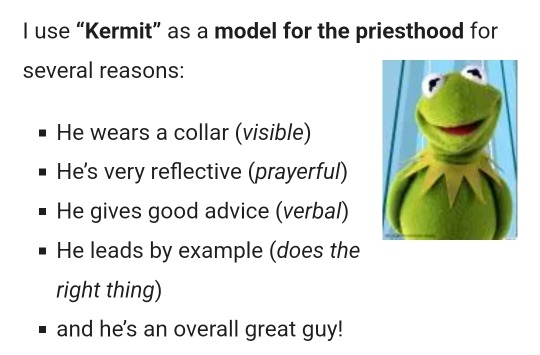
I was trying to find out if Kermit was eligible to be pope and I found a blog that says he's the perfect example of a catholic priest
165K notes
·
View notes
Text

peak philosophy in ao3 tags
#ao3#fanfic#archive of our own#fandom#ao3 truly is a treasure trove and so are authors#especially relevant to me now since i'm in my bagginshield era of sickness
33K notes
·
View notes
Text
#tiktok#and this is only relevant to those who know about my cat but i found out this turtles name is fig too
49K notes
·
View notes
Text
It's been a hot minute so here's what we did for the month of June!
New Character Designs!
In anticipation of work on the epilog, @firelocket and I ironed out some secondary character designs!
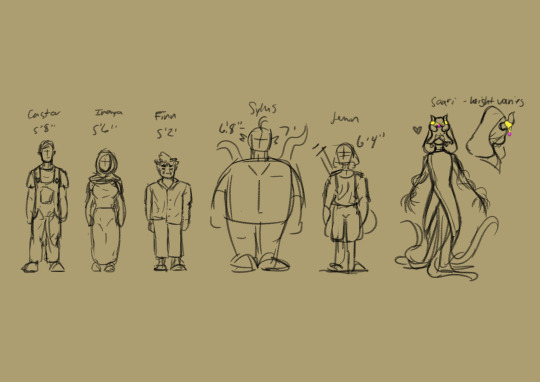
Saari qel'Qax
First Archon of the Violet Banquet
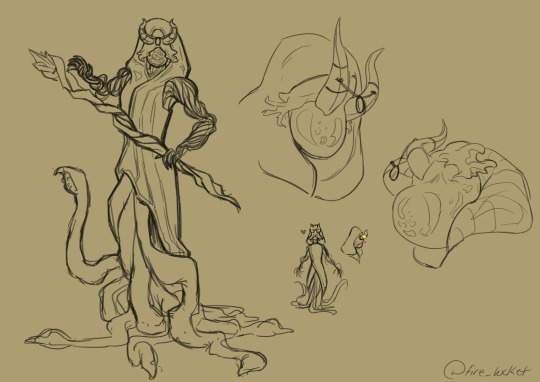
Finn
Tailor for the Banquet, a pile of raccoons in a human suit
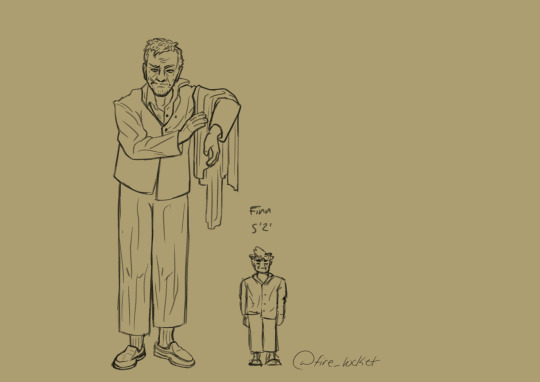
Inaya Lathek
Gem cutter and soul crystal forger
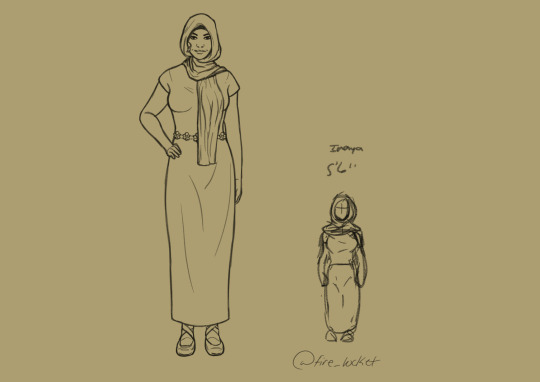
Castor
Mechanic, machinist, Void-technologist
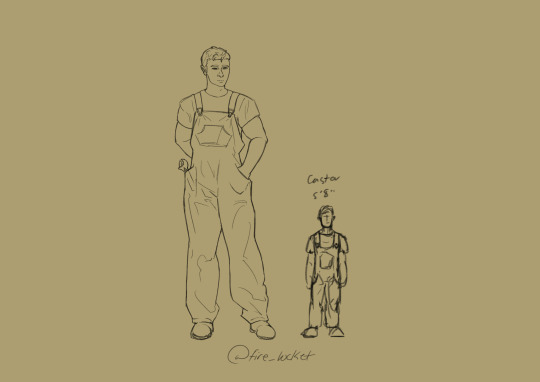
Edie!
Always by Jeron's side, she's a lot more than meets the eye, but eyes can only see so much
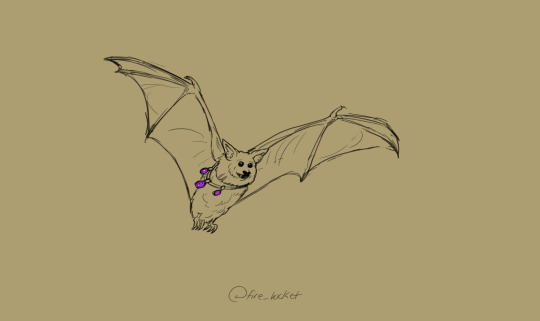
Reprisals!
Some fun renditions of Sylus and Jeron!
Sylus Synclaire
Voidlord of the Violet Banquet, The Devourer, Jeron's partner
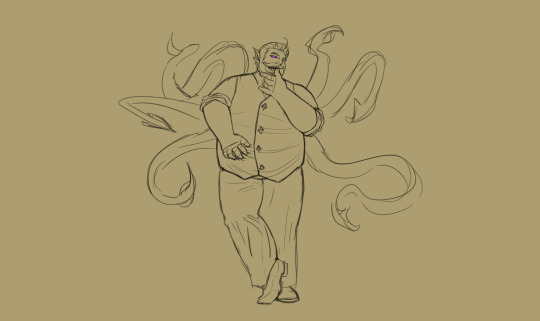
Jeron Miles
Archon of the Violet Banquet, Audiomancer, Sylus' partner. (minor book 2 spoilers)
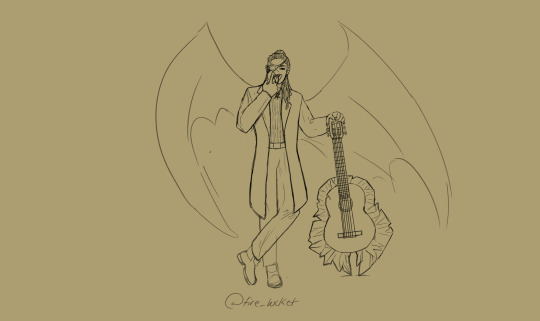
Lineup!
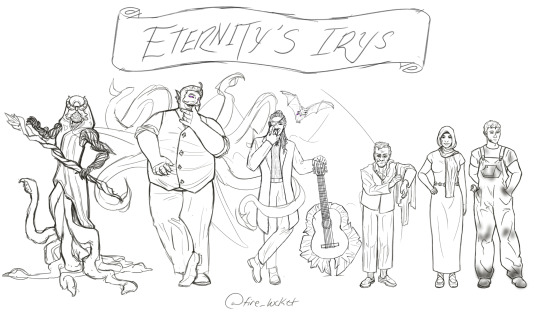
Additional Updates!
🦑 Epilog is underway!
💜 Second major editing pass is almost complete on book 2!
🦇 Book 2 cover is complete!
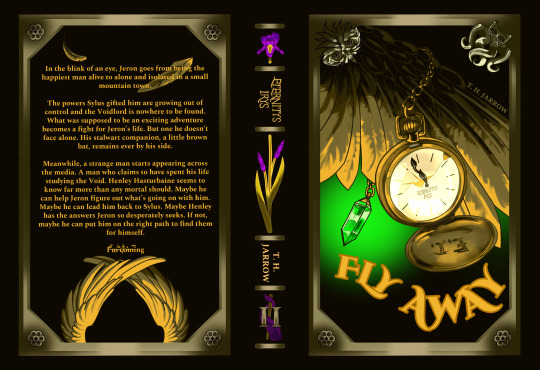
Looks like we're on course for an early 2026 release for Eternity's Irys: Fly Away!
#author#writing#lgbtq#writer#fiction#writeblr#writers on tumblr#lgbtq books#character design#character development#lgbtq characters#indie author#self publishing#lgbtq author#lgbtq artist#lgbtq artwork#tentacle monster#gay characters#trans character#tentacles#cosmic horror#booklr#character illustration#book illustration#book art#debut author#debut novel#I know what Jeron's doing and yes#it's relevant
0 notes
Text

Their facial expression says it all.
#the despair the disappointment the resignation#I’m not mad just disappointed#the only praise I could give for this arc is the art#nothing else#dick was super mad at Bruce in canon tho#but that’s not relevant here#anything from canon is irrelevant#me yappin#jason todd#dick grayson#bruce wayne#batfamily#batfam#batman#dc comics#my art
11K notes
·
View notes
Text

“I am the Bad Wolf. I create myself. I take the words. I scatter them in time, and space. A message to lead myself here.”
#doctor who#rose tyler#billie piper#bad wolf#my art#suddenly this drawing I made a few weeks ago gets more relevant
10K notes
·
View notes
Text

Finally caught up with Apothecary Diaries. I can't believe they gave Maomao a gun.
#the apothecary diaries#maomao#jinshi#I started watching back from the beginning and oh man...this series is a delight.#Maomao is one of my favourite protagonists for the fact she is a unique mystery lover who also loves to stay in her own lane.#She's here to solve the 'how' of the mystery but the who? Not her problem and not her job.#No crazy leaps in logic. Just a girl who loves her posions and puzzles.#I want to say so much more about this series but It really is best enjoyed as something to discover on your own! It's a mystery after all!#I want to draw some crossover art for this series so badly...Perhaps...perhaps...#This dehydration story comes from my own life - in which my flatmates have a running bit about calling sport drinks 'potions'.#This was very relevant when I was suffering from dehydration (low sodium intake + over drinking lead to a very bad time).#That's right. You can dehydrate via drinking too much water. Low sodium and low potassium can make you very ill as well.#Sometimes what you need is someone aggressively reminding you to add salt to your dishes and drink your goddamn potion.
13K notes
·
View notes